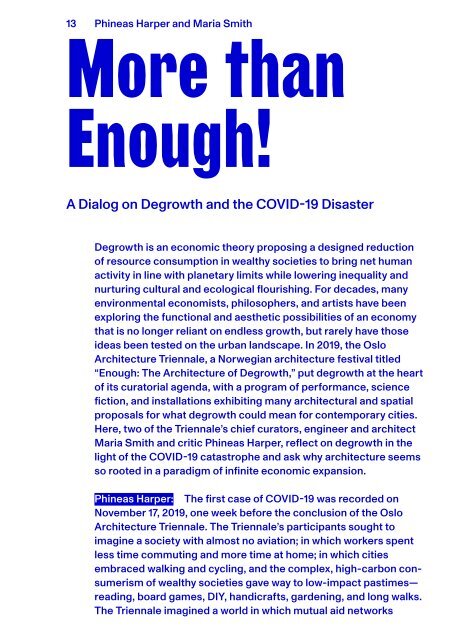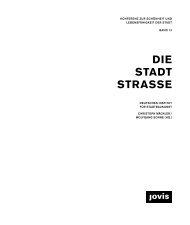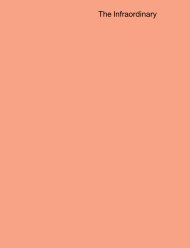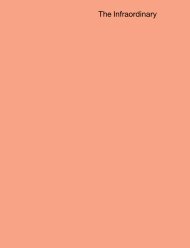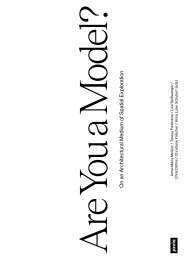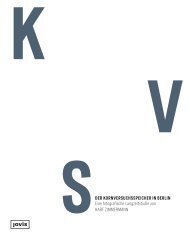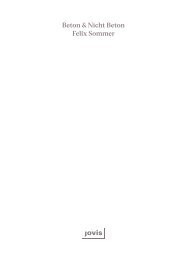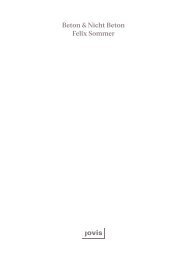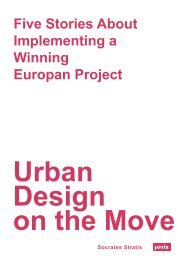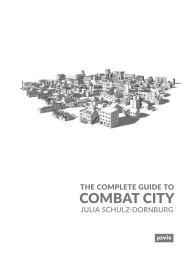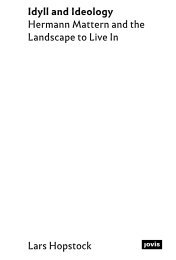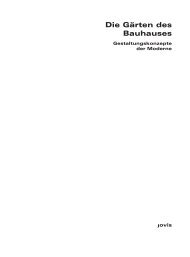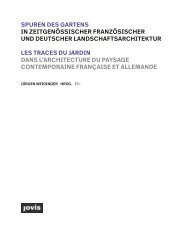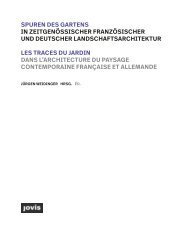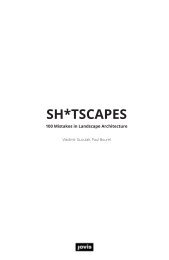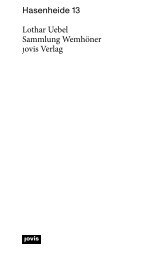Post-pandemic Urbanis
ISBN 978-3-86859-710-3
ISBN 978-3-86859-710-3
You also want an ePaper? Increase the reach of your titles
YUMPU automatically turns print PDFs into web optimized ePapers that Google loves.
13 Phineas Harper and Maria Smith<br />
More than<br />
Enough!<br />
A Dialog on Degrowth and the COVID-19 Disaster<br />
Degrowth is an economic theory proposing a designed reduction<br />
of resource consumption in wealthy societies to bring net human<br />
activity in line with planetary limits while lowering inequality and<br />
nurturing cultural and ecological flourishing. For decades, many<br />
environmental economists, philosophers, and artists have been<br />
exploring the functional and aesthetic possibilities of an economy<br />
that is no longer reliant on endless growth, but rarely have those<br />
ideas been tested on the urban landscape. In 2019, the Oslo<br />
Architecture Triennale, a Norwegian architecture festival titled<br />
“Enough: The Architecture of Degrowth,” put degrowth at the heart<br />
of its curatorial agenda, with a program of performance, science<br />
fiction, and installations exhibiting many architectural and spatial<br />
proposals for what degrowth could mean for contemporary cities.<br />
Here, two of the Triennale’s chief curators, engineer and architect<br />
Maria Smith and critic Phineas Harper, reflect on degrowth in the<br />
light of the COVID-19 catastrophe and ask why architecture seems<br />
so rooted in a paradigm of infinite economic expansion.<br />
Phineas Harper: The first case of COVID-19 was recorded on<br />
November 17, 2019, one week before the conclusion of the Oslo<br />
Architecture Triennale. The Triennale’s participants sought to<br />
imagine a society with almost no aviation; in which workers spent<br />
less time commuting and more time at home; in which cities<br />
embraced walking and cycling, and the complex, high-carbon consumerism<br />
of wealthy societies gave way to low-impact pastimes—<br />
reading, board games, DIY, handicrafts, gardening, and long walks.<br />
The Triennale imagined a world in which mutual aid networks


